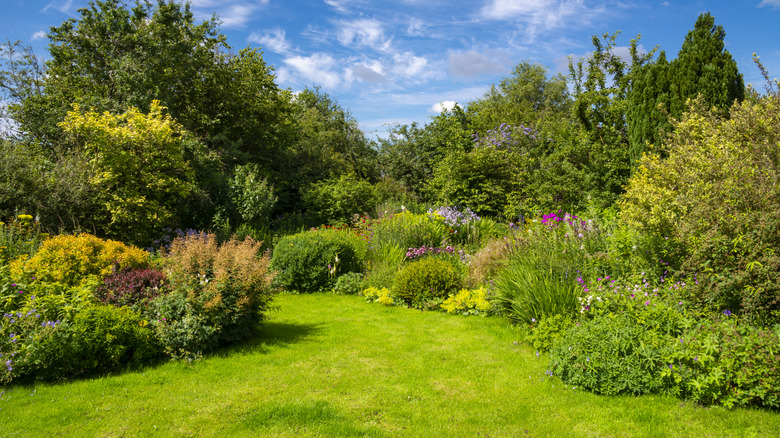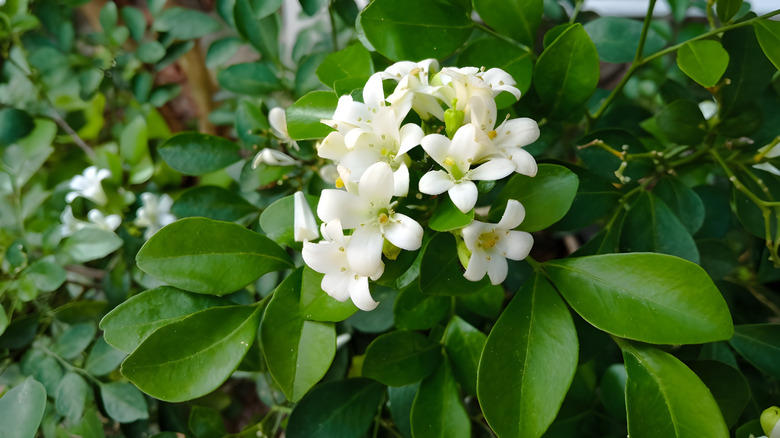The Citrus-Smelling Shrub That's Heat-Tolerant And Pollinators Love
If you garden in a region with hot summers, you might find it challenging to source local heat-tolerant shrubs that can add beauty to your yard while also having other pleasing characteristics. That's why you may have to take a look at more exotic species that are native to countries outside the United States. If you want to attract pollinators to your yard, there's one highly attractive citrus-smelling shrub you might want to consider. It's native to China, India, and Australia, and is commonly known as orange jasmine, mock orange, or orange jessamine. It's a gorgeous plant with the most alluring scent, reminiscent of orange blossoms — an aroma that the types of beneficial bees you'll want in your garden won't be able to resist.
Orange jessamine (Murraya paniculata) can only be grown in USDA hardiness zones 10 through 12, but this means it's extremely heat-tolerant and likes the humidity too. It's also quite versatile as it doesn't mind being pruned and shaped, and makes a stunning hedge with its glossy green leaves and heavily fragranced white flowers. This species can also be added to the list of numerous shrubs you can plant that produce pretty red berries which will keep visiting birds happy too. In its natural habitat it can reach lofty heights of 20 feet but if you decide to grow it in your garden, you can easily keep it to a more manageable size, even as low as 2 to 3 feet.
How to grow orange jessamine in your yard
Before planting this species in your yard, take note that it's on the Florida invasive plant list and listed as potentially invasive, so check with your municipality first. It's also listed as invasive in Hawaii, so shouldn't be grown in that state at all. If you're lucky enough to be able to grow this shrub in your yard, you're in for a treat because it's low-care and will provide you with color and sweet fragrance almost all year round. It does need organically rich, well-drained soil that should be allowed to dry between watering. You can plant orange jessamine in full sun or part shade but keep it protected from strong winds.
Although this plant is relatively tolerant of pests, it can fall victim to attacks from sap-sucking insects such as scale and mealybugs, as well as whiteflies. However, these can easily be controlled with horticultural oil and yellow sticky traps. It's also a host for the Asian citrus psyllid, so care should be taken if you live anywhere near a citrus orchard, especially if citrus greening disease is a problem in your area. In saying that, studies conducted in Brazil back in 2019, discovered that orange jessamine was a useful trap crop around citrus orchards, possibly making this one of several herbs and flowers you should grow alongside citrus trees in your garden. Even when grown alone, this gorgeous heat-tolerant shrub will certainly add interest to your landscape and keep all those bees, birds, and butterflies happy.

